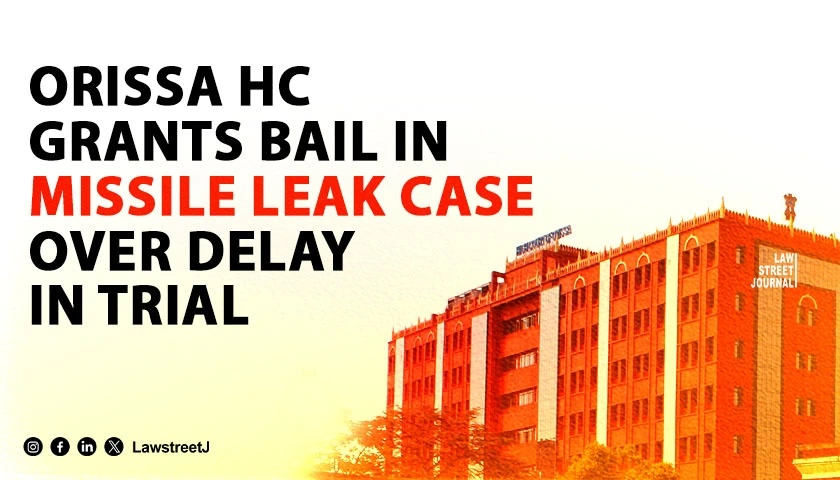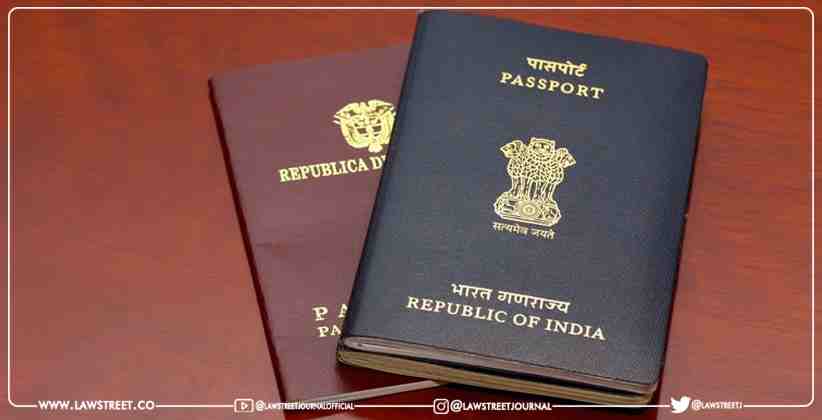Orissa: The Orissa High Court has delivered a significant judgment granting bail to an accused in a case involving the alleged leak of classified information related to missile testing at the Integrated Test Range (ITR), Balasore, to foreign nationals. The court emphasized the constitutional right to a speedy trial over prolonged incarceration.
Justice G. Satapathy made crucial observations on balancing national security concerns with fundamental rights, stating that “no procedure which does not ensure a speedy trial can be regarded as a fair trial.”
The court was hearing Bail Application No. 2876 of 2024 filed by Basanta Kumar Behera under Section 483 of the BNSS, seeking bail in CID, Crime Branch, Cuttack PS Case No.14 of 2021 for offences under Sections 120-B/121/121-A/34 of the IPC read with Sections 3/4/5 of the Official Secrets Act. The court noted, “The Petitioner has been in custody since 15.09.2021 and is nearing four years in detention without the conclusion of trial.”
Addressing the nature of evidence, the court observed: “There are allegations against the Petitioner for passing secret information to Yanika Yadav; however, the exact nature of this information has not been disclosed till date, although it is claimed that screenshots from the Petitioner’s Facebook chat have been collected by the Investigating Agency.”
On the trial’s progress, the court stated: “As of 20.05.2025, 19 out of 28 charge-sheeted witnesses have been examined. The right to a speedy trial is a fundamental right under Article 21 of the Constitution.”
Regarding the trial court’s earlier denial of bail, the High Court noted: “The learned trial court relied on the testimony of PW11, who narrated the Petitioner’s confession to the police. However, a confession made before the police is inadmissible in law.”
While acknowledging the seriousness of the charges, the court emphasized that bail cannot be denied solely based on the gravity of allegations when the accused has endured prolonged pre-trial incarceration.
The court further observed: “The case involves passing classified information about the ITR, Chandipur, to foreign nationals, potentially compromising national security. There is material suggesting that the Petitioner received ₹14,000 and ₹24,000 on two separate occasions from Yanika Yadav, who is allegedly a Pakistani national.”
Citing the Supreme Court’s judgment in Union of India vs. K.A. Najeeb, the court reiterated: “Statutory restrictions like Section 43D(5) of the UAPA do not bar Constitutional Courts from granting bail where there is a violation of Part III rights of the Constitution. Such rigours diminish when the trial is unlikely to conclude in a reasonable time, and incarceration has already exceeded a substantial portion of the prescribed sentence.”
On the duty of the State, the court stated: “Once the State or complainant causes an accused to be taken into custody, it is their obligation to proceed with the trial promptly, irrespective of whether the accused demands a speedy trial.”
The court also reinforced the presumption of innocence, stating: “An accused remains innocent until proven guilty. This right, fundamental to criminal jurisprudence, cannot be disregarded—no matter how stringent the law.”
In its final direction, the court noted: “Considering the grant of bail to co-accused Sachin Kumar Chhata and Tapas Ranjan Nayak, the Petitioner has made out a case for bail,” and accordingly granted bail upon furnishing a bond of ₹5,00,000 with two solvent sureties.
The court further observed that the Petitioner had earlier availed interim bail on two occasions without any reported misuse of the concession and that he was a “contractual AC Operator at the ITR at the relevant time.”
Mr. A. Mishra appeared for the Petitioner, while Mr. P. Satpathy, Additional Public Prosecutor, represented the State of Odisha.
Case Title: Basanta Kumar Behera vs. State of Odisha




![Orissa HC awards Rs 10 lakh to father who lost child to stray dog attack [Read Judgment]](/secure/uploads/2023/12/lj_3371_Stray_dog_menace.jpg)
![Orissa HC rules in favour of BJDs Lok Sabha MP Anubhav Mohanty in divorce plea [Read Judgment]](/secure/uploads/2024/01/lj_2524_Anubhav_Mohanty.jpg)
![Indian Courts this Week: Law Street Journal's Weekly Round-Up of SC & HCs [Jan 1 - Jan 6]](/secure/uploads/2024/01/lj_9050_WhatsApp_Image_2024-01-06_at_12.07.10_PM.jpeg)




